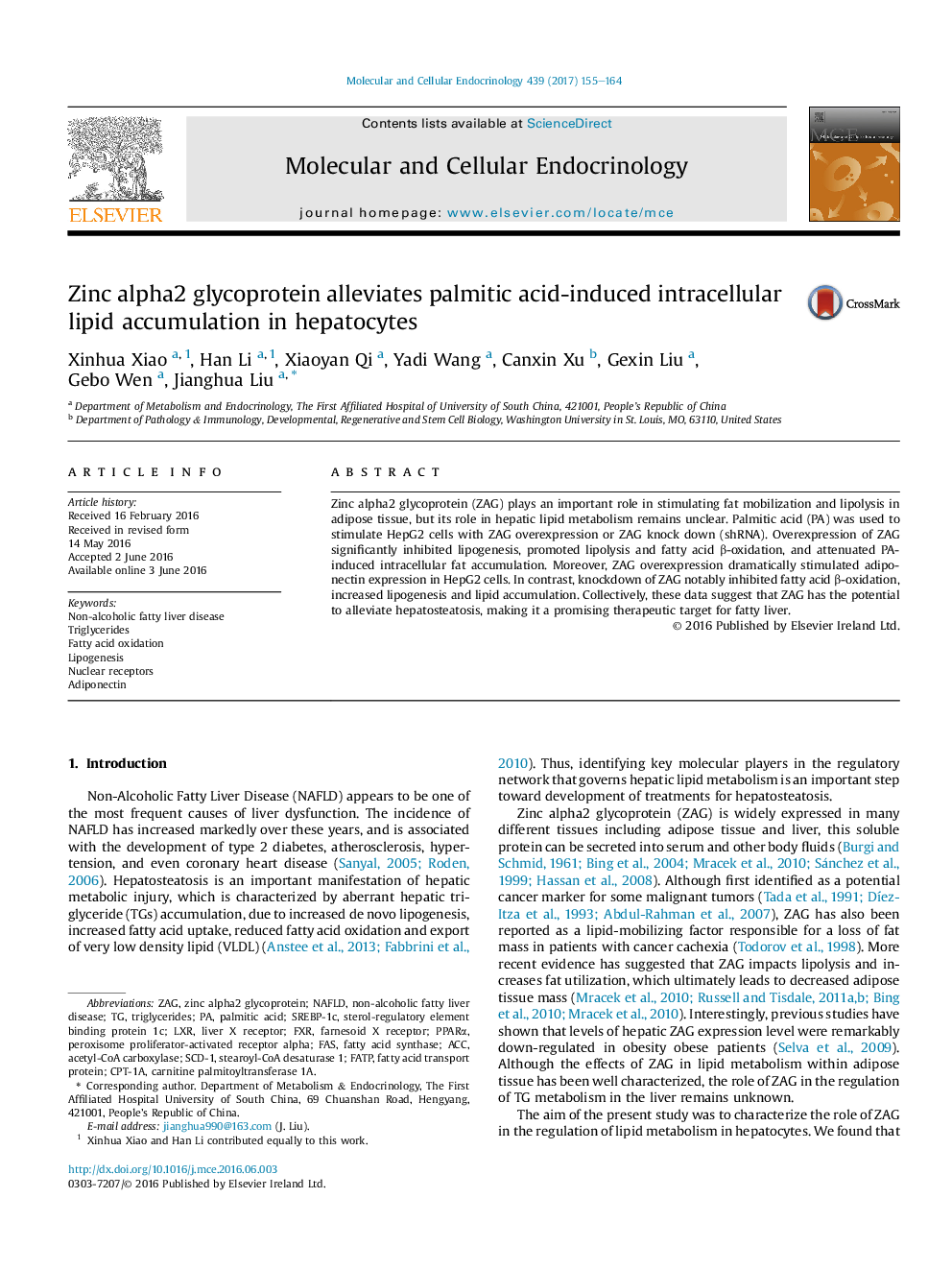| Article ID | Journal | Published Year | Pages | File Type |
|---|---|---|---|---|
| 5534307 | Molecular and Cellular Endocrinology | 2017 | 10 Pages |
â¢This paper provides the first physiological evidence for the role of Zinc alpha2 glycoprotein (ZAG) in the regulation of lipid metabolism in hepatocytes.â¢Our study has identified, for the first time, manipulation of ZAG expression in hepatocytes altered hepatic TG accumulation and the expression of key fatty acid oxidation genes and lipogenesis genes.â¢ZAG could also dramatically stimulate adiponectin expression in hepatocytes.
Zinc alpha2 glycoprotein (ZAG) plays an important role in stimulating fat mobilization and lipolysis in adipose tissue, but its role in hepatic lipid metabolism remains unclear. Palmitic acid (PA) was used to stimulate HepG2 cells with ZAG overexpression or ZAG knock down (shRNA). Overexpression of ZAG significantly inhibited lipogenesis, promoted lipolysis and fatty acid β-oxidation, and attenuated PA-induced intracellular fat accumulation. Moreover, ZAG overexpression dramatically stimulated adiponectin expression in HepG2 cells. In contrast, knockdown of ZAG notably inhibited fatty acid β-oxidation, increased lipogenesis and lipid accumulation. Collectively, these data suggest that ZAG has the potential to alleviate hepatosteatosis, making it a promising therapeutic target for fatty liver.
